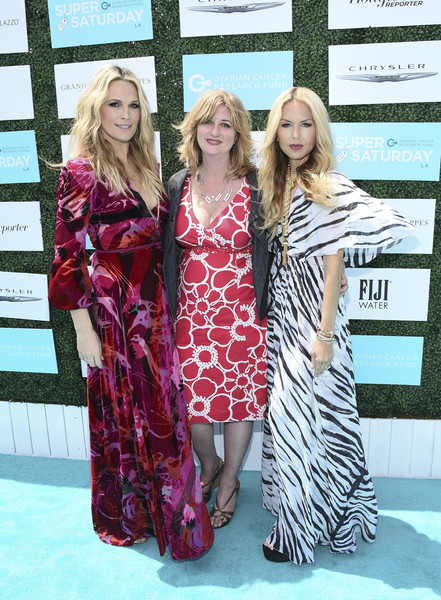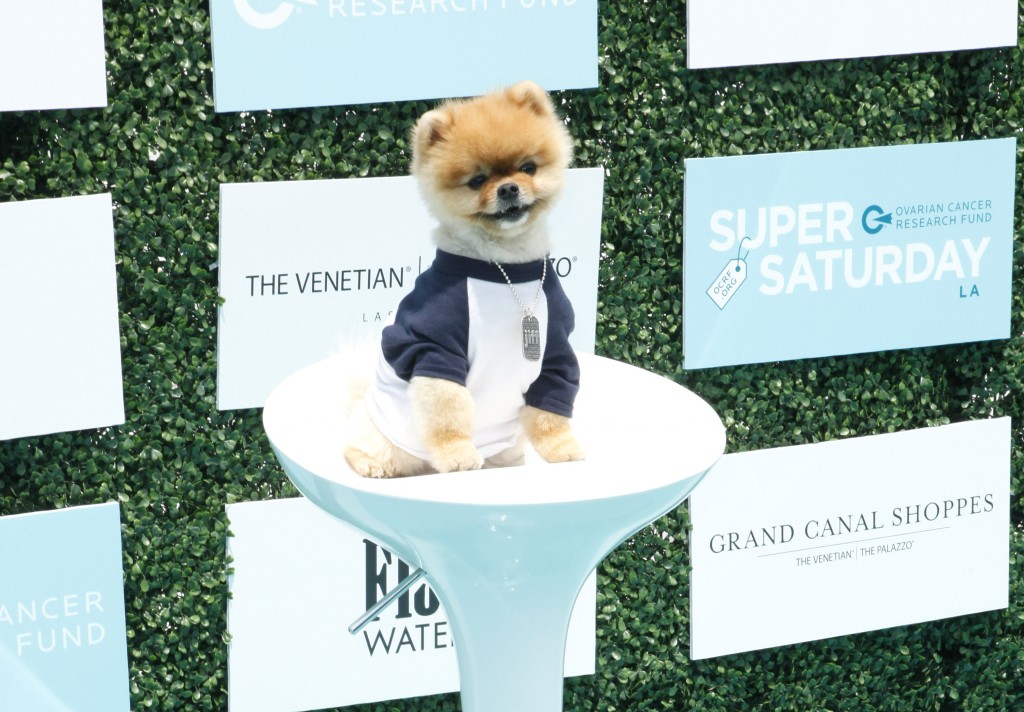AUDRA MORAN IS NOT YOUR TYPICAL CEO.
She’s spent her entire career in the non-profit sector of the business world. While her vast experience rivals anyone else’s in her field, it is her work at Ovarian Cancer Research Fund that has been her latest and proudest achievement. The organization, whose mission it is to raise funds for research, has been able to give the most in its history since Moran took the helm. She spoke with Lady Clever about the impact social media has had on non-profit organizations, how OCRF is different from other organizations, why it’s such an important organization , and, of course about their star-studded shopping extravaganza fundraiser, Super Saturday.
How did you get involved in non-profits?
After graduate school, I moved from Florida to New York, and my first job was working as a rehabilitation counselor with deaf-blind adults at Helen Keller National Center on Long Island. It was truly one of the most rewarding positions I could have imagined. I was there seven years, and then went to work at another non-profit managing a research grant program for neurobiological disorders (mental illness), and fell in love with the world of research, staying there in expanded roles for the next 11 years.
Do you have a personal connection to ovarian cancer that made you want to get involved with OCRF?
Initially, my love of research and my desire to promote women’s health were my driving forces. Now after working here five years, sadly, I have known and loved too many women who have lost their battle with ovarian cancer, which makes the cause even more personal.
How is OCRF different from other women’s cancer organizations?
I think something special and unique about OCRF is that it is very elegant in its clarity and vision — our goal is to fund research to stop ovarian cancer, while also supporting women going through a diagnosis. This very clear mission defines our day-to-day goals, which are always geared towards raising more funds to end this terrible disease.
During your tenure as OCRF’s CEO, the organization’s giving has increased significantly. How have you been able to accomplish this? When you first joined OCRF, did you have specific plans you wanted to execute, or things you wanted to change?
I joined OCRF at a crucial time — in non-profit years, OCRF was entering late adolescence, and thus it was time to start seeking bigger opportunities and challenges. Some fairly immediate changes resulted in noticeable results — we built a development department with an increased focus on major gifts, devoted a full-time staff person to grassroots events being held for OCRF around the country, added personalized fundraising pages to our website, and worked to increase corporate partnerships. We also worked to further expand our relationships with other organizations doing similar work, and one of these relationships resulted in us taking on Ovarian Cycle, a former donor to OCRF, and expanding their indoor spinning event from just a few cities, to most recently, 23 cities in 2015.
Can you tell us about Super Saturday and why you think it’s so successful?
OCRF’s Super Saturday was started in the summer of 1998 by Liz Tilberis, the late editor-in-chief of Harper’s Bazaar and former OCRF president, and Donna Karan, with the first Super Saturday held in the backyard of Liz’s Hamptons home. Liz and Donna raided their own closets, asked their many fashionable friends to do the same, invited companies to donate high-end designer merchandise, and then invited guests to shop at discounted prices.
The first Super Saturday in 1998 raised $200,000. In 2014, OCRF’s Super Saturday bicoastal events in New York and Los Angeles raised over $4 million.
Have you found that social media has helped play a role in increasing support for OCRF and ovarian cancer awareness?
Building our social media community, particularly on Facebook, has helped increase both ovarian cancer awareness and support for OCRF. We have established a passionate community of survivors and their families, those who have lost loved ones to the disease, as well as dedicated corporate supporters and others who connect to share their personal stories and provide support, empathy, and encouragement.
 Let’s talk about ovarian cancer. How can women get screened for this disease?
Let’s talk about ovarian cancer. How can women get screened for this disease?
Unfortunately, there is no effective method of screening for ovarian cancer, though this is something that researchers are working hard to uncover. For example, researchers are exploring whether using transvaginal ultrasound, in combination with a blood marker called CA-125, can be used to effectively screen women for ovarian cancer.
Are there specific factors, like age or family history, that should lead some women should to be screened earlier than others?
The average woman has a very low risk of developing ovarian cancer, but some women are at higher risk — most notably women that carry mutations in their BRCA 1 or 2 genes, or that have a family history of breast or ovarian cancer. Women with risk factors should talk to their doctor about their concerns. Most women who develop ovarian cancer are age 55 and older.
Are there symptoms women can watch out for to detect ovarian cancer earlier rather than later?
The symptoms of ovarian cancer are often vague, and frequently not gynecologic in nature. Research shows that women with ovarian cancer often report having a bloated abdomen (some women notice that their clothes are getting tight around the waist). Other symptoms include pain in the abdomen or pelvis, having difficulty eating, and/or a change in bowel habits. It’s not clear whether these symptoms show up in early stage disease, or are only present when the disease is more advanced.
What is one of OCRF’s biggest successes that you’re particularly proud of?
One of my proudest accomplishments is identifying Woman to Woman, a peer support program for women undergoing treatment for any type of gynecologic cancer that we were funding at Mount Sinai Hospital in New York City, and expanding it with help from our corporate partner, QVC, to 23 hospitals around the country by the end of 2015. But likely our biggest success has been becoming the largest private funder of ovarian cancer research in the U.S.
Shopping for a super cause? Sign us up!
To find out more about OCRF, visit its website. Learn about the many ways to get involved, such as attending or volunteering at an OCRF event, hosting an event of your own in your hometown, such as an Ovarian Cycle ride, and just helping to spread the word about the need for continued and increased research in our quest to end ovarian cancer.
You can follow OCRF on Facebook, Twitter, and YouTube to stay up-to-date with this organization’s work.


















